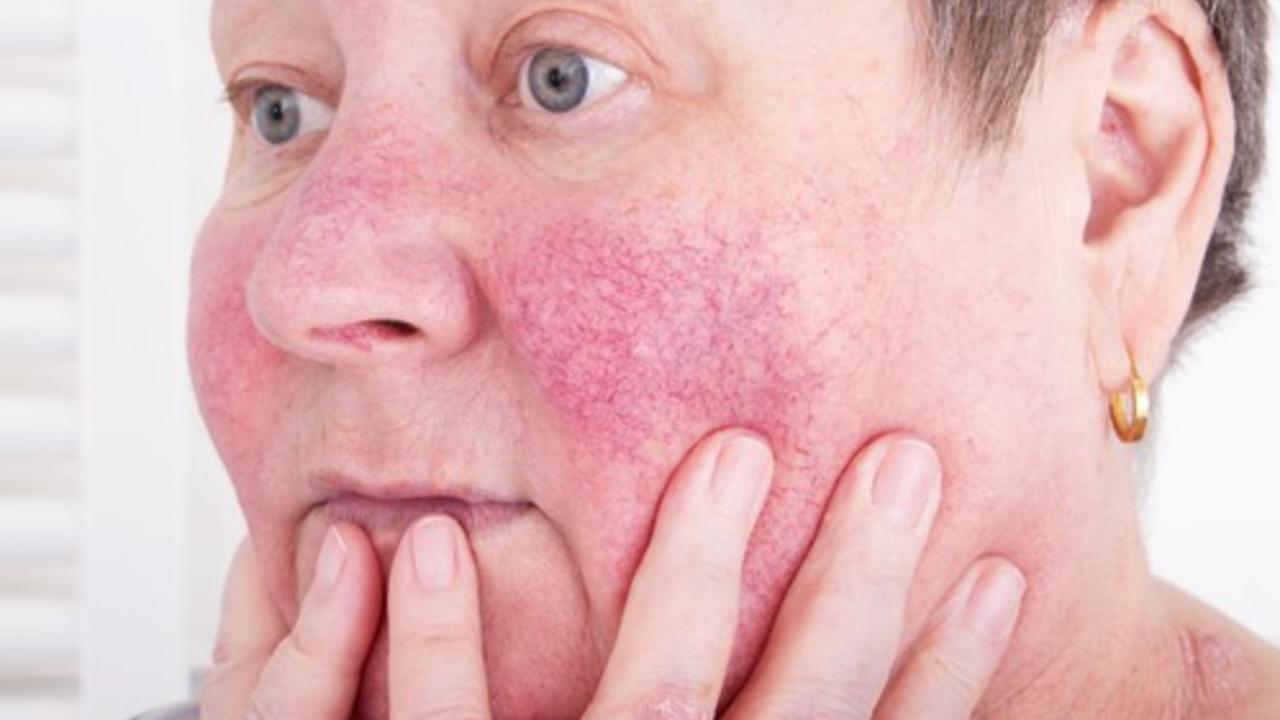Rosacea
Mar 11, 2020

Rosacea is an inflammatory skin condition. It can happen at any stage of life but it’s most common during the menopausal transition.
Common signs include
- Flushing and easy blushing
- Permanent redness
- Red Pustules (puss-filled bumps)
- Red gritty eyes
- Burning and stinging sensations on the facial skin
- Visible small blood vessels near the skin
- Thickening of the skin
Although the cause of Rosacea is unknown, there are common triggers, the most common being damage to the facial blood vessels caused by repeated and prolonged dilation such as that which occurs with regular hot flushes. Other triggers include:
- Alcohol
- B vitamin deficiency (especially B12)
- Food allergies
- Hypothyroidism
- Gastrointestinal disorders
- Environmental factors such as prolonged sun exposure, wind exposure, and extreme cold or heat.
- Temperature variations can also be in the bathroom with long hot baths, spas, and saunas.
- Stress, as stress hormones promote inflammation of the skin and can further dilate blood vessels causing flushes.
Dietary considerations to reduce
- Are you avoiding food allergies, sensitivities and intolerances? Are you aware of what foods you are reacting to or do you potentially need to do an elimination diet or complete food intolerance testing?
- It’s best to avoid foods that promote flushing e.g. coffee, alcohol, hot beverages & spicy foods
- Avoid inflammatory foods such as sugars, processed grains & deep-fried foods.
- Dairy has direct links with Rosacea. Try a dairy-free diet and see the difference yourself.
- Avoid histamine promoting foods such as citrus fruit.
Dietary considerations to increase
- Soluble fibre (to detoxify the bowel)
- Quality animal-based protein
- Antioxidant & phytonutrient-rich fruit & veg
- Essential fatty acids from fish, nuts & seeds
- Anti-inflammatory herbs and spices like turmeric, saffron, ginger, garlic, and coriander
Supplements to consider for Rosacea?
- Omega 3 Fish oil: reduces inflammation, support skin health & immune function
- Lysine an amino acid that helps build collagen and reduce redness.
- Probiotics – to support digestive and immune health
- Anti-oxidants: Vitamin A, C, E, Zinc
- Herbs such as Turmeric, Burdock
Consider getting a referral to see a dermatologist.


